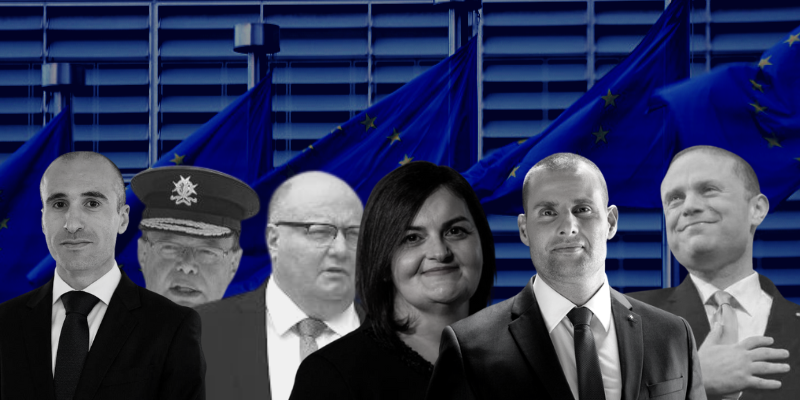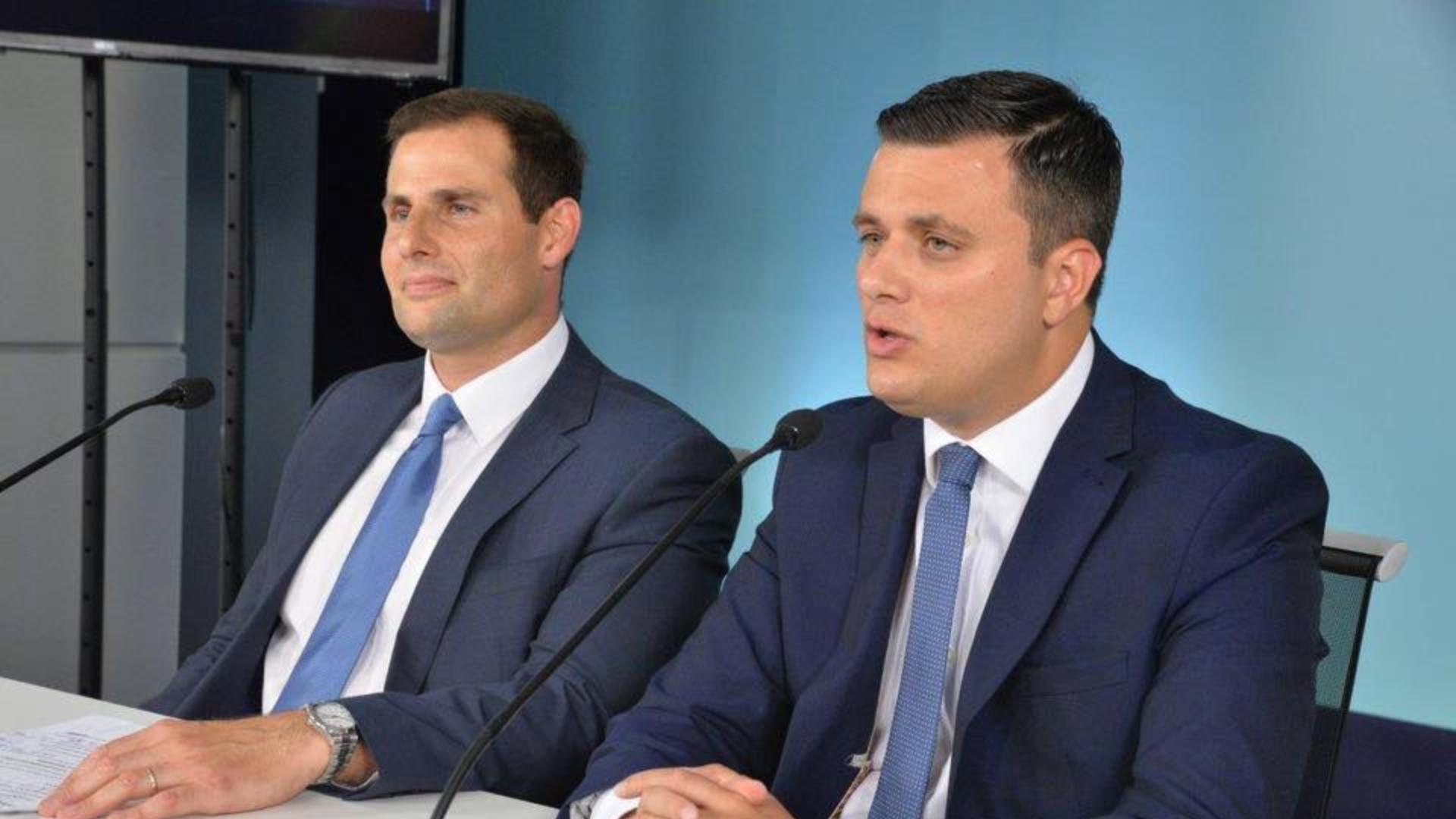The list of cases where European law enforcement authorities are picking up where Malta’s are failing is getting longer. This, in and of itself, should be alarming because it shows that despite changes at the top and the much-vaunted “unprecedented reforms” repeatedly trumpeted by the government and its sources, things seem to be getting progressively worse.
If this were not enough, our authorities have also gained a reputation for being uncooperative with foreign investigators and, worse still, appear unable or unwilling to identify who among them is responsible for detecting and investigating financial crimes.
Not a one-off
The most recent arrest of Iosif Galea shows how Maltese authorities did nothing with a German arrest warrant for the gaming consultant for nearly a year, and that request has still not been fully processed.
Galea was arrested in Italy between 14 and 15 May as part of a German investigation linked to tax evasion. Notwithstanding that Galea was “of interest” to both the German and the local authorities, he was able to travel in and out of Malta at least a couple of times, according to reports.
Malta’s failure to affect Galea’s arrest raises serious concerns, but as columnist Kevin Cassar noted, Iosef Galea’s case is hardly a one-off – our authorities have an abysmal track record of failing to arrest and effectively prosecute alleged criminals.
Before Iosif Galea, there was the case of Nicholas Cachia, a business associate of Yorgen Fenech who is undergoing money laundering proceedings in Malta. Cachia was granted bail and was then arrested in Italy after a European Arrest Warrant was issued by France.
Cachia was arrested in March during a trip to Sicily and extradited to France to be interrogated about suspicions that he could be connected to a French horse doping ring involving 26 people. However, news of Cachia’s arrest only emerged in court after a money laundering case against him in Malta was postponed due to his arrest abroad.
Then there is the case of Ryan Schembri, the former boss of the defunct More Supermarket chain, who was extradited from Scotland and brought to Malta in May to face charges of fraud and money laundering estimated to be in the tens of millions of euros.
During the compilation of evidence in court, the lead investigator stated that police had known Schembri had fled Malta as early as 2014, but despite a long list of complaints from multiple investors, there had been no attempt to bring him back to the island to face justice. The police only issued an international arrest warrant seven years after Schembri left the island, leading the presiding magistrate to call for the officer in charge to testify and explain this delay.
There’s also the Pilatus Bank owner, Ali Sadr Hasheminejad, who in 2020 was arrested and convicted in the US on five counts, including bank fraud and breaching US sanctions on Iran. Later, a US court reversed the Iranian banker’s earlier guilty conviction on a technicality.
However, while Hasheminejad was being prosecuted for bank fraud and breaching US sanctions, local authorities never investigated him for money laundering through bank accounts held at Pilatus Bank, including the network of offshore companies being handled via Nexia BT accountant Brian Tonna on behalf of disgraced former Prime Minister Joseph Muscat’s chief of staff Keith Schembri.
Unresponsive or uncooperative
For years, Malta has proven to be a spoke in the wheels for Italian law enforcement’s efforts to fight organised crime – crime that has found a facilitating, if not symbiotic, environment in Malta.
In 2017, when Italian investigators were cracking down on a number of mafia-related businesses that had moved their gaming franchises to Malta, the chief anti-mafia prosecutor of Catanzaro Nicola Gratteri lamented that “it is easier to work with Peru or Colombia than with Malta”.
He was referring to the length of time it took the then-Attorney General Peter Grech to seize the assets of Centurionbet – a gambling company in Malta run by the son of a convicted mafioso. “If Malta decides not to collaborate or replies six months or a year later, the investigation is useless” the prosecutor added.
That same year, when Italian authorities were investigating an international oil smuggling operation from Libya, Andrea Bonomo, the prosecutor in Catania who led an Italian investigation into the smuggling trade, said: “We have attempted several times to collaborate with Maltese authorities on the oil-smuggling investigation, with several international requests for information, but they have gone unanswered for 18 months.”
And lest we think that these complaints are merely the musings of hard-to-please Italian investigators, in 2021 a US State Department report concluded that Malta had failed to meet the minimum standards in the fight against human trafficking, and condemned the lack of investigations, noting the “perennial issues with rule of law, corruption, slow court proceedings, and an understaffed police force continued to hamper prosecutions and convictions.”
The report also noted that in 2021, unlike in previous years, “the government did not report cooperating in any joint international trafficking investigations or extraditing any trafficking suspects.”
Recalcitrant club members
The first report by the European Public Prosecutor’s Office (EPPO) confirmed what the chief prosecutor had observed in October 2021; that not a single actionable report of fraud related to EU funds has come from Malta.
Laura Kovesi, the chief prosecutor at EPPO, noted that a lack of reporting from Malta could also mean that possible abuse on the island is going unchecked. After all, during her meetings with various national authorities, Kovesi told MEPs that she was unable to identify the institution in Malta responsible for detecting financial crimes, and recalled how nobody could provide her with answers on who was responsible for fraud investigations.
The EPPO was established in 2017 to probe and prosecute fraud against the EU budget and other crimes against the EU’s financial interests, including misuse of EU funds and cross-border VAT fraud.
Malta had originally declined to form part of the EPPO, citing “sound technical reasons agreed between the government and opposition”.
Following the assassination of Daphne Caruana Galizia, the then-Justice Minister Owen Bonnici told a meeting of the EU’s Council of Ministers in 2018 that Malta would be formally submitting its application to join the office in the coming months, only to then delay the start of the office’s operations in 2020 by failing to nominate to the body its three candidates for the country’s representative in the College of Prosecutors.
Worst of all, in the face of all this evidence of our institutions’ repeated failures, the best answer that Home Affairs Minister Byron Camilleri could come up with in parliament, when questioned about Iosif Galea’s arrest, was a mixture of contempt and partisan jibes, treating the questions as a nuisance rather than the echoes of legitimate concerns.














SHAME ON THIS SUPER CORRUPT GOVERNMENT.
The question is WHERE do the handcuffs click for Joseph Muscat, ROBBER Abela, Angelo Gafá, Lawrence Cutajar, Konrad Mizzi and/or Keith Schembri and/or…!
The question is WHERE, in which country, do the handcuffs click?
Malta seems less likely.
Do you mean ‘click’ or ‘clicka’?
When the amount of money passes a certain level, the justice system and law enforcement starts to bend.
We need an independent police unit!
This is not possible without foreign help, e.g. from the mafia units of Italy.
The same applies to our wretched judicial system, which has also been infiltrated.
There was no ‘technicality’ which allowed Ali Sadr to get off the hook from his earlier guilty conviction which would have sent him to Federal prison for more than 85 years because a conspiracy happened between the EU administration, the Brits and the previous Trump US administration related to projects that involve Iranian shareholdings.
CORRUPTION GALORE. BUT WE WITH BRAINS SEE IT, AND THE IDIOTS HAVEN’T GOT A CLUE AND THE WORST ISYET TO COME!!!👎👹👎